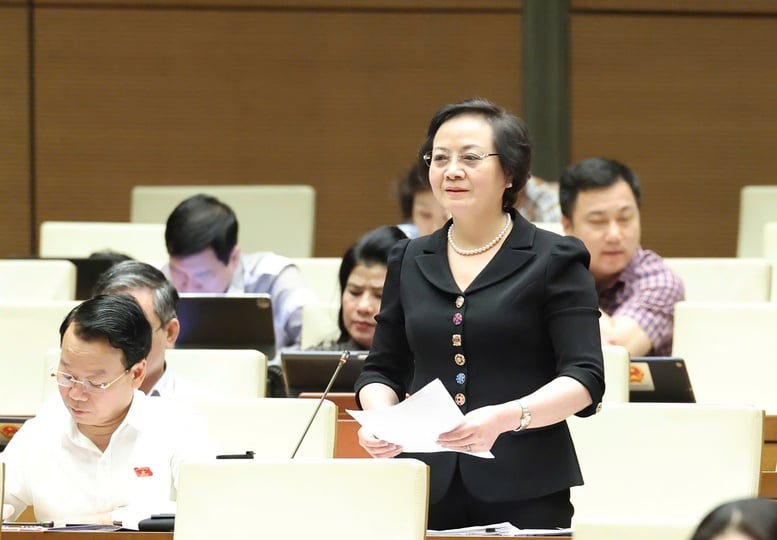
Minister of Home Affairs Pham Thi Thanh Tra spoke to explain and clarify a number of issues raised by National Assembly deputies at the discussion session.
On the afternoon of June 17, continuing the 9th Session, the National Assembly focused on discussing the socio -economic development situation, the state budget, thrift practice, anti-wastefulness and many other important contents.
Speaking at the meeting, Minister of Home Affairs Pham Thi Thanh Tra clarified many contents related to the arrangement of administrative units at all levels and the implementation of the two-level local government model.
The Minister emphasized that this is a major "revolution" in the organization of the state administrative apparatus, requiring strong innovation in thinking and operating methods, in which the human factor - especially the team of cadres and civil servants - plays a key role.
According to the Minister, restructuring and improving the quality of the staff, civil servants and public employees is no longer an option but an urgent requirement, to shift from an administrative management model to one that serves the people.
The large volume of work and task requirements require civil servants, especially commune-level civil servants, to be multi-talented, multi-tasking, have the ability to synthesize, handle work with innovative thinking, standardized public service skills, public service ethics and a high sense of responsibility, meeting the expectations of national and local governance, especially meeting the requirements of people and businesses.
The Ministry of Home Affairs has identified four key groups of solutions to implement this task. Firstly, localities need to seriously implement the policies of the Central Committee, the Politburo , and the direction of the Government and the Prime Minister in reorganizing the apparatus and restructuring the staff in a practical and effective manner.
In particular, the implementation of the Law on Organization of Local Government (recently passed by the National Assembly) and the Law on Cadres and Civil Servants (which will take effect from July 1) are important legal bases to innovate the civil service and improve the quality of the staff.
Along with that, localities need to focus on comprehensively reviewing cadres and civil servants on implementation capacity, especially heads of Party committees and authorities at provincial and commune levels.
Humanitarian policies to support the affected and retain talent
Second, Minister Pham Thi Thanh Tra affirmed that the urgent and full and effective implementation of current policies to support cadres, civil servants and public employees affected by the restructuring of the apparatus and administrative units is an important requirement.
A set of policies has been issued including Decrees 178, 167, 177, 179 and most recently Decree 154 of the Government - a system of policies that are "very humane, proactive, reasonable, and outstanding".
Policies should not only aim to appropriately address redundancies but also focus on retaining competent people and attracting and utilizing talent in the public sector.
The Minister also affirmed: "The Ministry of Home Affairs will continue to review to ensure full, comprehensive, and overall policies to both restructure and improve the quality of the staff and civil servants, and create conditions for staff and civil servants when leaving the public sector to have the opportunity to participate in the private sector in the most favorable way."
Third, the Minister emphasized the need to do a good job of ideological work, because in the context of carrying out a "great revolution" in organizational apparatus, it is inevitable that there will be concerns and worries from a number of cadres and civil servants.
"We clearly identify that this is a great revolution, so there will be dedication and acceptance of personal sacrifice, not demanding beyond the country's capacity. We need to clear our minds, maintain our spirit to contribute to the country. Now more than ever, the country needs us and let's do the best for the country's development," the Minister expressed.
Fourth, the Ministry of Home Affairs has identified focusing on training and fostering cadres and civil servants – especially at the commune level – as a key task. Immediately after the Law on Cadres and Civil Servants is passed by the National Assembly, the Ministry will promptly advise the Government to issue a decree related to training and fostering cadres and civil servants.
The training policy will prioritize ethnic minority and female cadres, build a public service culture, take serving the people as a measure to evaluate cadres, and dedication and integrity as standards of conduct...
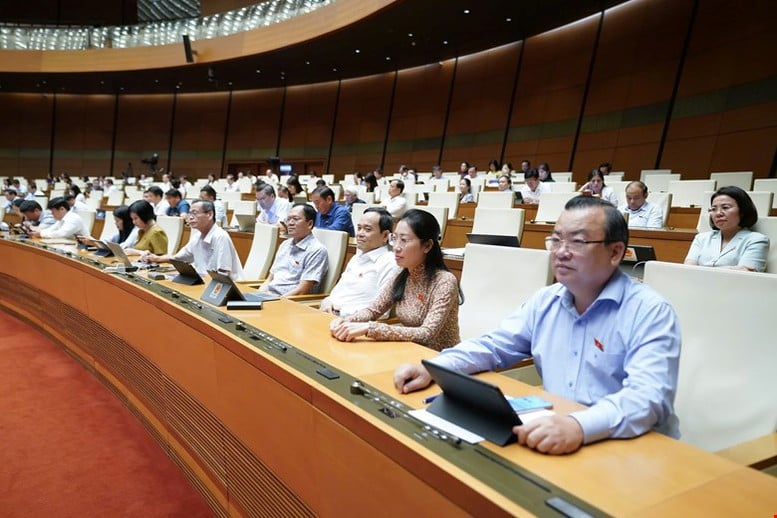
The National Assembly focused on discussing the socio-economic development situation.
In addition to the task of building the team, Minister Pham Thi Thanh Tra also clarified the requirements for effectively operating the two-level local government model - a model that aims for a governance system that is close to the people, closer to the people, and better serves the people. The tasks and solutions that have been and are being implemented are very synchronous and drastic.
First of all is the task of perfecting the institutional system. The Minister emphasized that the National Assembly has promptly passed basic and important laws, especially the Law on Organization of Local Government and related laws. In addition, a "large series of decrees" has been issued by the Government to specify regulations on organizational structure, decentralization, delegation of power and division of authority between government levels.
Recently, the Government also coordinated with the Ho Chi Minh National Academy of Politics to organize a training conference for the entire political system, helping to improve implementation capacity and awareness of the new model.
In the coming time, competent authorities will continue to supplement to complete legal tools and strict corridors to organize implementation smoothly.
According to the Minister, decentralization and delegation of power are prerequisites for the effective operation of two-level government. The Government has been focusing on vigorously implementing the spirit of "local decision, local action, local responsibility". This not only motivates localities but also helps reduce the burden on the central government, enhancing initiative and creativity in management.
Along with institutions and apparatus, the Minister also emphasized solutions to promote digital governance and modernize operational activities - core factors to improve the effectiveness and efficiency of government in the digital transformation era.
In addition, enhancing people's participation and supervision is also one of the pillars to build a transparent, public, democratic and highly accountable governance system.
Finally, Minister Pham Thi Thanh Tra affirmed that the Ministry of Home Affairs and other ministries, branches and agencies will continue to accompany and support localities in resolving issues arising when implementing two-level local government.
According to the Minister, the transformation of the governance model is not without challenges, but with high political determination, synchronous action, joint efforts of all levels, sectors and especially the staff in the system, the new government model will operate increasingly effectively and efficiently, meeting the people's expectations.
Thu Giang
Source: https://baochinhphu.vn/bo-truong-noi-vu-doi-ngu-can-bo-la-then-chot-quyet-dinh-thanh-cong-mo-hinh-chinh-quyen-2-cap-10225061718354796.htm






![[Photo] Prime Minister Pham Minh Chinh chairs the 14th meeting of the Steering Committee on IUU](https://vphoto.vietnam.vn/thumb/1200x675/vietnam/resource/IMAGE/2025/9/23/a5244e94b6dd49b3b52bbb92201c6986)
![[Photo] Editor-in-Chief of Nhan Dan Newspaper Le Quoc Minh received the working delegation of Pasaxon Newspaper](https://vphoto.vietnam.vn/thumb/1200x675/vietnam/resource/IMAGE/2025/9/23/da79369d8d2849318c3fe8e792f4ce16)
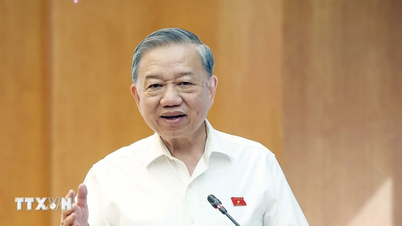

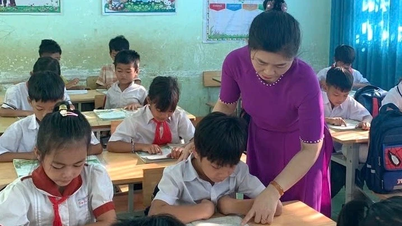




























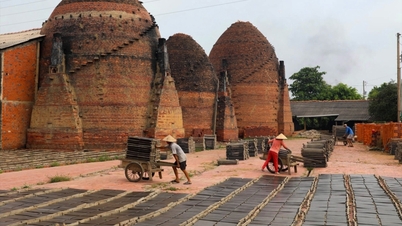





























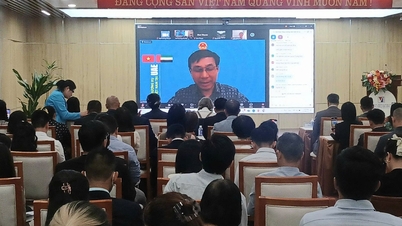






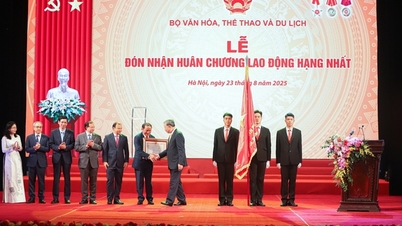
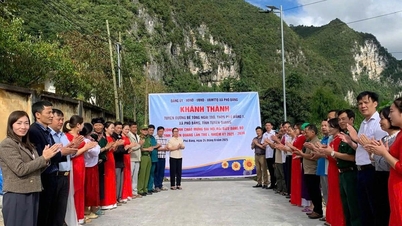




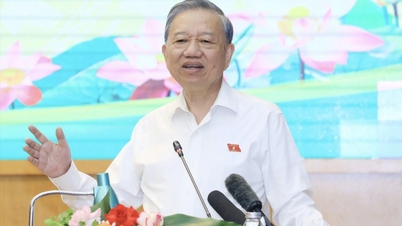
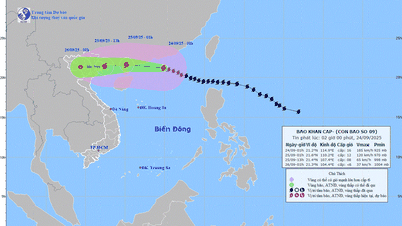














Comment (0)